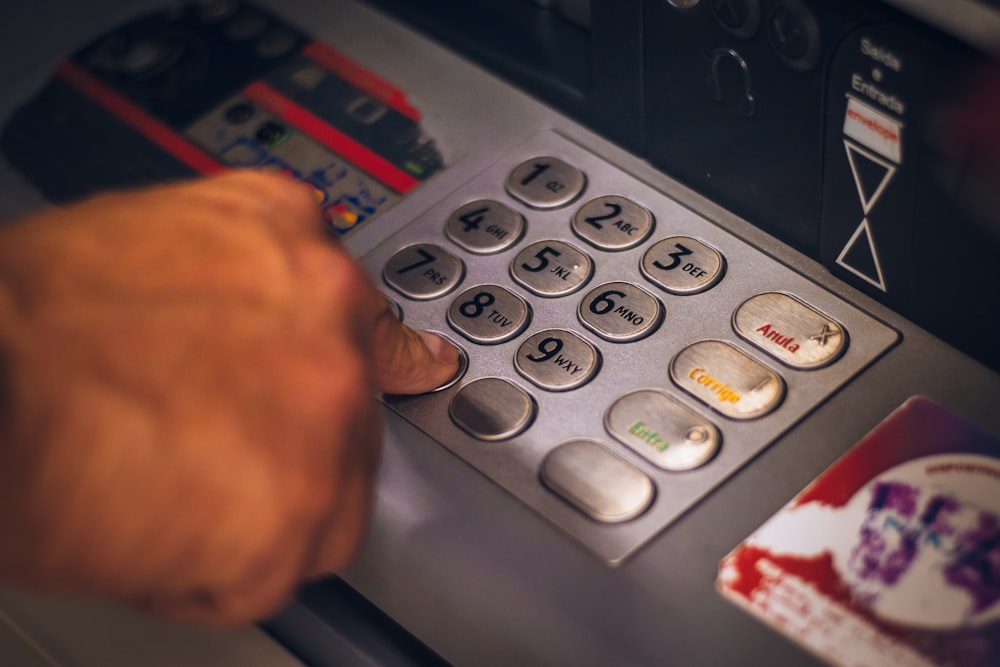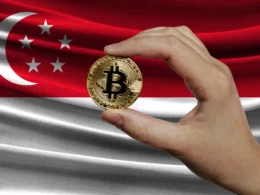Decentralized finance is everywhere.
Projects like Ethereum are no longer a best-kept secret that only crypto nerds know. Mainstream media’s coverage on crypto and blockchain is catching up. Considering the potential for this technology to change the financial world, it’s not surprising. But with so much possibility and potential for what crypto can offer to the public, many have been wondering, where do banks and other financial institutions stand in all of this?
What is decentralized finance?
Decentralized finance (DeFi) is an umbrella term that includes all blockchain or crypto financial services designed to cut out the middle man between consumer and product.
The idea behind DeFi comes from blockchain technology. The whole appeal of blockchain is that it is entirely decentralized and not in a single entity’s hands. The gatekeeping model of finance and business has limited speed and efficiency, giving all the power in a single entity’s hands. De-Fi aims to solve all that.

To explain it a bit further, when you buy a coffee with a credit, there’s a financial institution in between, such as Visa or Mastercard. They control the funds and can stop or pause them if they wish. But with decentralized finance, crypto takes the place of the middle man. You and you alone hold that power. De-Fi can equalize everything for the consumer, and this goes beyond direct purchases. Further along, we will see this implemented in loans, insurance, crowdfunding, and derivatives.
De-Fi can best be defined as a contract between two parties written in code. On top of not needing a central authority, the system also allows for anonymous transactions. All without needing a legal system or external enforcement mechanism. Decentralized finance transactions are usually traceable, transparent, and irreversible.
How decentralized finance affects banking
Commercial banks
Commercial banks earn their revenue by accepting deposits and giving out loans. Borrowing and lending are essential aspects of the economy. So banks must incentivize depositors to provide liquidity to the markets.
With decentralized finance, users can now borrow or lend money to other users without barriers. Smart Contracts engage the two parties and set interest rates according to scarcity. The protocol is game-changing. Particularly in underdeveloped parts of the world where financial institutions are hard to come by. Anyone now, no matter the location or amount, can interact with the contract.

Borrowing and lending protocols are probably the most hyped in the DeFI space. Projects like Compound allow loans to be secured via over-collateralization, while projects like Aave are moving towards offering lowing uncollateralized loans like traditional finance.
Investment banks
Investment banks provide clients with financial advice and manage their funds. And as we all know, investment banks like Goldman Sachs don’t have a good reputation. Since they are partly responsible for the 2009 financial crisis.
Fortunately, decentralized finance already offers similar products to investment banks. Synthetix, as an example, is a derivative issuance protocol that gives traders the chance to create synthetic assets such as stocks, currencies, or commodities. These mimic the price of the underlying asset and it’s all decentralized.

Central banks
Most people in crypto hate central banks. The centralized banking system is why so many people get into cryptocurrencies. But even central banks now have some De-Fi solutions called stablecoins.
Stablecoins are blockchain protocols that are not subject to volatility. Often used in decentralized finance as a reserve currency, the use of stablecoins is essential as they enable users to interact with the various DeFi products.
Adopting De-Fi
According to Fintech Times, research shows that 23% of insurance, banking, and trading companies have tried out DeFi products, while 55% have already integrated it to a degree.
While decentralized finance poses a threat to their business model, many ‘woke’ financial institutions are acknowledging and considering it as an alternative. The more the mainstream learns about DeFi, the higher the demand for adoption.

Decentralized finance is still in its infancy, which for some, raises concerns about its safety and reliability. DeFi is also very difficult to integrate into the banking system from a technological and legal point of view. Today, there is still a lack of clarity by regulators.
However, those issues are being resolved, as open-source code is allowing passionate experts from all around the world to contribute to the projects. As more time passes, there is no doubt that DeFi will remove barriers that old financial institutions pose.
Final thoughts
For many of the reasons mentioned above, decentralized finance has become more than a passing trend — it is a movement. Crypto seems to be here to stay, with the likes of Ethereum, Polkadot, and many more altcoins growing in popularity. In Vietnam, for example, there are De-Fi projects that are supported by the government. Actions like this prove that it is only a matter of time until banks and other financial institutions notice the huge potential of DeFi.
The De-Fi space is an ever-changing and exciting community to be a part of. As an investor, getting a piece of this very large pie is imperative to make profit. The most common way of earning profit in this space is through trading DeFi assets. Most traders use non-custodial decentralized exchanges. However, we all want to get rich passively. With staking, investors can get started on this journey, earning rewards and high yields far faster than they would with a conventional bank.
RockX takes the difficulty out of staking and helps investors earn more the right way. With over $200M assets staked, providing $20M in annual yield, RockX allows users to stake several popular protocols and gives people the opportunity to make more by doing less.









